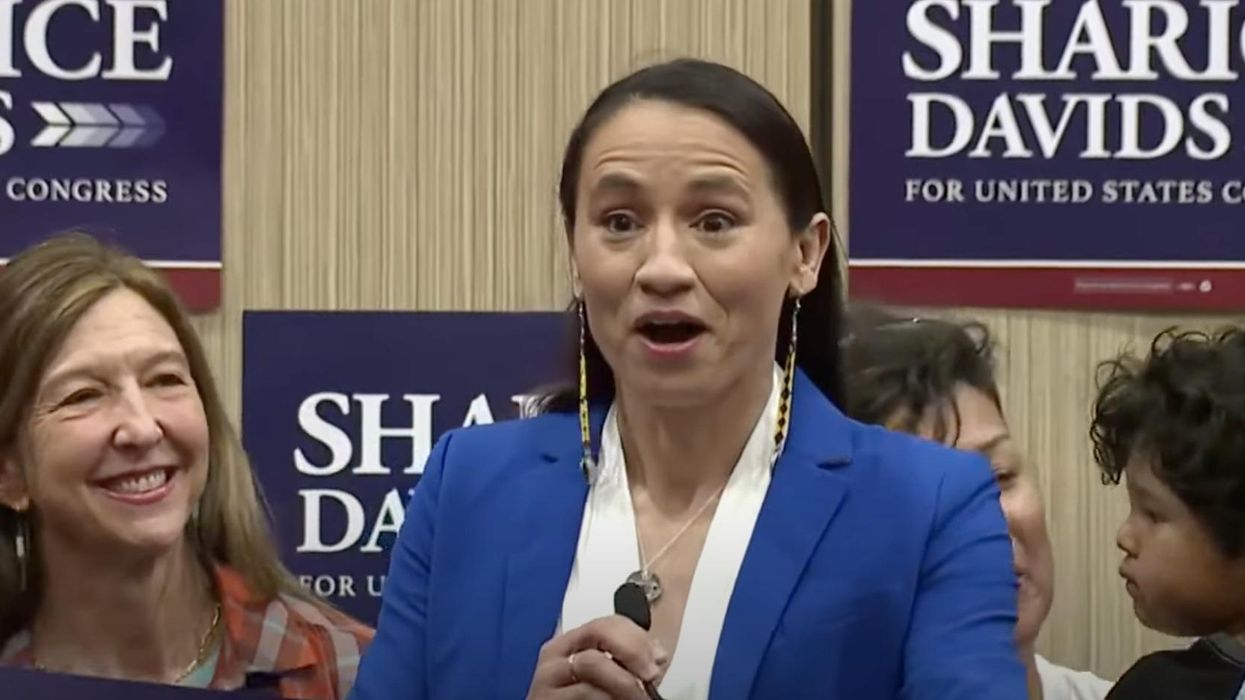Voters Told Them No, But Kansas Republicans Still Push New Abortion Restrictions
Imagine that your party puts forward a constitutional amendment outlawing abortion before the public, and it gets demolished by voters. I mean, the kind of blowout we didn’t even see in a presidential election in Kansas, a deep-red state. In 27 out of 40 state state Senate districts, the amendment was defeated. Statewide, the amendment was a disaster for Republicans, helped set the stage for the retention of Democratic Gov. Laura Kelly, and made way for an equally solid win by Democratic Rep. Sharice Davids in a newly drawn district geared toward making her a candidate they could beat.
So how do Republicans respond to this news in the land of Oz? I would say they are doubling down but at this point, but II can’t even keep track of how many times they are going back to this old chestnut.
Legislation proposed by GOP state Sen. Chase Blasi, who recently replaced state Sen. Gene Sullentrop, indicates that Republicans have decided that, if Kansas residents won’t approve abortion bans, city councils and city governments will. Republicans hope they will find themselves stacked up with conservatives willing to ban abortion procedures everywhere in Kansas that they still exist.
Blasi represents District 27, where 54 percent of voters rejected the anti-abortion constitutional amendment. Despite that, the newly minted state senator wants to make a splash—by working at crafting legislation that would result in exactly the opposite of what his district chose at the ballot box.
Nothing says “I respect voters” like trying to fool them into thinking the issue is over—while putting the issue in front of friends and allies in lower offices before voters have even had a chance to consider who represents them. That’s right: Imagine passing legislation that allows a local city council member or mayor to move on an anti-abortion agenda three years into their term—when such a policy was expressly impossible for those three years, and before the Supreme Court overturned Roe v. Wade.
The bill offers a straightforward change to Kansas statute:
(b) No political subdivision of the state shall regulate or restrict abortion Except as provided in subsection (a), nothing shall prevent any city or county from regulating abortion within its boundaries as long as the regulation is at least as stringent as or more stringent than imposed by state law. In such cases, the more stringent local regulation shall control
The endgame here is not that hard to calculate. Republicans believe that their attempt to ban abortion during a special election failed because it got the attention of voters. If they can continuously place the issue on every single ballot from now on, voters will be forced to take abortion access into consideration in city council votes and mayoral votes in every locale in Kansas.
While there are few actual clinics in the state, fear, uncertainty, and doubt could certainly propel elections in every community—including places like my own sub-1,000-population hometown—into wild debates. Does our town want to allow a clinic? Would a council member vote to permanently ban one from ever coming into town?
With more Democrat-friendly city governments and county commissions in larger communities, Republicans are hoping to take on abortion again this November. This is a strategy built on moving the goalposts, to keep trying to make it easier and easier for the side that lost—badly—to come back and declare victory.
For Kansans who believed the August 2 “No” vote on the constitutional amendment banning reproductive care would be the end of Republican attacks on the issue, it’s now crystal clear: Kansas Republicans have no intent of giving up on forcing birth, and banning abortion remains one of their top goals—whether the public is with them or not
Reprinted with permission from Daily Kos.




